What conditions cause botulinum toxin to develop?
According to the Department of Food Safety (Ministry of Health), in nature, spores of the bacteria clostridium botulinum are quite common, they have a high survival ability in soil and dust, found in garden soil, cemeteries, mud, fresh or composted animal manure, digestive tract of animals, poultry, fish... In particular, spores of the bacteria clostridium botulinum can withstand high temperatures of 100 degrees Celsius.
Clostridium botulinum under suitable conditions will form toxins and produce 7 types of toxins A, B, C, D, E, F, G. Of which, the types that often cause poisoning are A and B, followed by E. Clostridium botulinum toxins are more virulent than the toxins of all other bacteria.
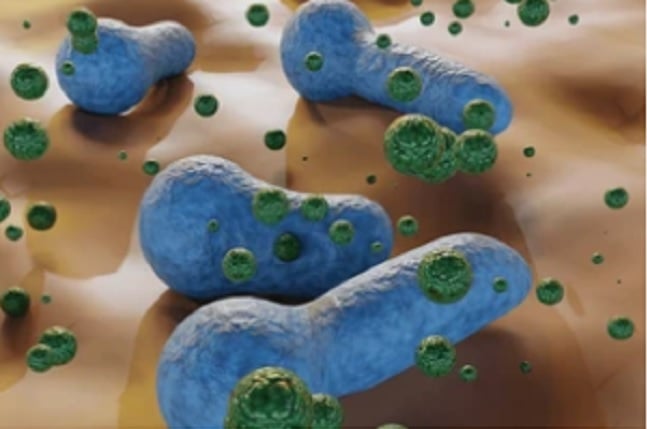
Clostridium botulinum (C.botulinum) is a gram-positive, rod-shaped bacterium that lives in anaerobic environments.
How dangerous is botulinum toxin?
Dr. Ho Thanh Lich - Deputy Head of the Department of Intensive Care and Emergency, Nam Sai Gon International General Hospital, said: Botulinum poisoning is dangerous because botulinum toxin is highly toxic, significantly affecting the human nervous system and muscle function. Below are the reasons why botulinum toxin causes dangerous poisoning:
Potent toxicity : Botulinum toxin is an extremely potent toxin. It has the ability to bind and block signals from the nervous system to the muscles. This leads to muscle paralysis and impaired ability to move and control the body.
Effects on the nervous system : Botulinum toxin attacks the nervous system, affecting the transmission of signals between nerve cells. This causes an imbalance in nerve function and can lead to serious problems such as respiratory failure. The patient suffers from bilateral symmetrical paralysis, starting from the head, face, neck and down to the legs with symptoms such as drooping eyelids, double vision, blurred vision, sore throat, difficulty swallowing, difficulty speaking, hoarseness, and dry mouth.
Effects on muscles : Botulinum toxin causes muscle paralysis by affecting the transmission of signals from the nerves to the muscles. When the muscles are paralyzed, the ability to move and function of the muscles is impaired, causing difficulty in breathing, swallowing, talking and other daily activities. Then paralysis of the arms, paralysis of the muscles in the chest, abdomen and paralysis of both legs.
Risk of respiratory failure : Botulinum poisoning can cause severe respiratory failure. When the respiratory muscles are paralyzed, breathing difficulties and even respiratory arrest can occur. This requires emergency medical intervention and respiratory support to sustain life.
Risk of death : Severe respiratory failure and nervous system attack are the main causes of death in cases of botulinum poisoning.
If the poisoning is mild, the patient may only feel tired, muscle fatigue similar to physical weakness, unable to perform normal strenuous movements... But if the poisoning is severe, the disease progresses rapidly, the patient may have paralysis of all muscles leading to phlegm retention, respiratory failure, causing respiratory arrest leading to death. Because of the strong toxicity and danger of botulinum toxin, early detection and treatment are extremely important to minimize the consequences and risk of death.
Patients with botulinum poisoning need to use specific antidotes as soon as possible, otherwise it will lead to muscle paralysis, respiratory failure and prolonged mechanical ventilation. However, the scarcity of antidotes is also a factor that makes treatment difficult and life-threatening.
WHO provides emergency support of 6 vials of Botulinum antitoxin to Vietnam
What foods are likely to cause botulinum poisoning?
According to the Food Safety Department (Ministry of Health), canned foods are most at risk of botulinum poisoning. In addition, all other foods such as vegetables, tubers, fruits, seafood... are still at risk of being contaminated with clostridium botulinum bacteria if food safety is not ensured and not properly stored and wrapped.
Common foods that can easily cause botulinum poisoning are processed foods, hand-packaged foods, small-scale production, household or unsecured production conditions, especially when the trend of using air-tight bags to contain food increases. In addition, not cooking food thoroughly before eating is also a cause of botulinum poisoning.
Source link



![[Photo] Prime Minister Pham Minh Chinh receives delegation of leaders of US universities](https://vstatic.vietnam.vn/vietnam/resource/IMAGE/2025/3/31/8be7f6be90624512b385fd1690124eaa)
![[Photo] General Secretary To Lam receives US Ambassador to Vietnam Marc E. Knapper](https://vstatic.vietnam.vn/vietnam/resource/IMAGE/2025/3/31/5ee45ded5fd548a685618a0b67c42970)
![[Photo] Speeding up construction of Ring Road 3 and Bien Hoa-Vung Tau Expressway](https://vstatic.vietnam.vn/vietnam/resource/IMAGE/2025/3/31/f1431fbe7d604caba041f84a718ccef7)



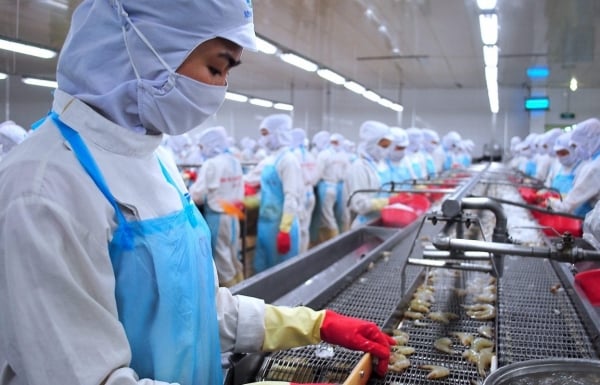







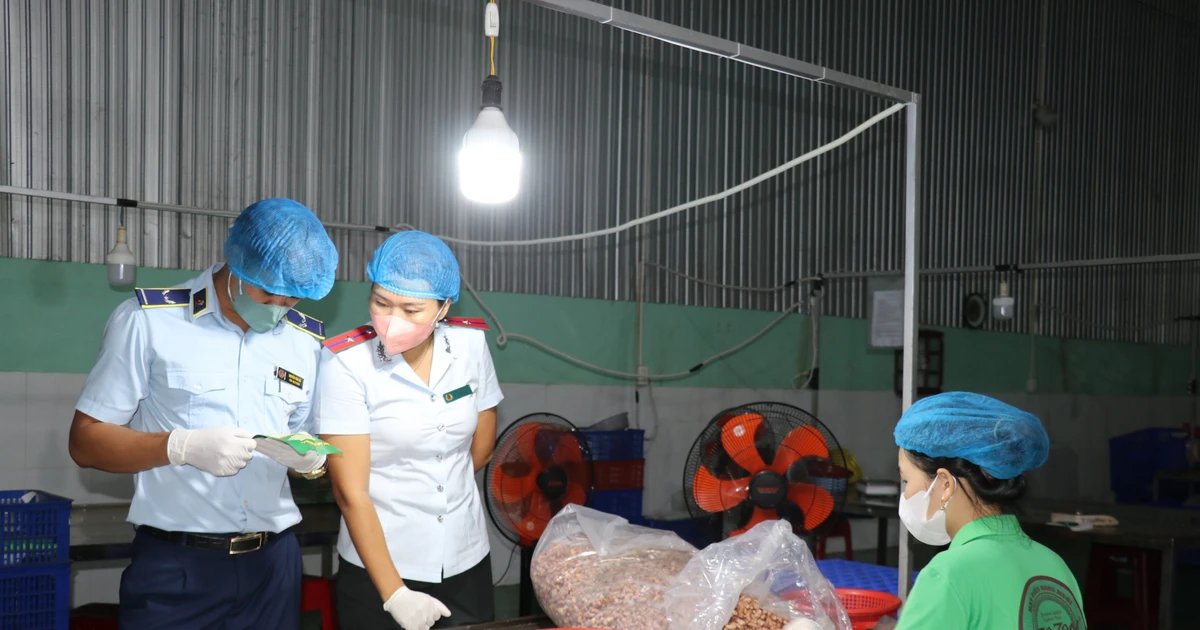








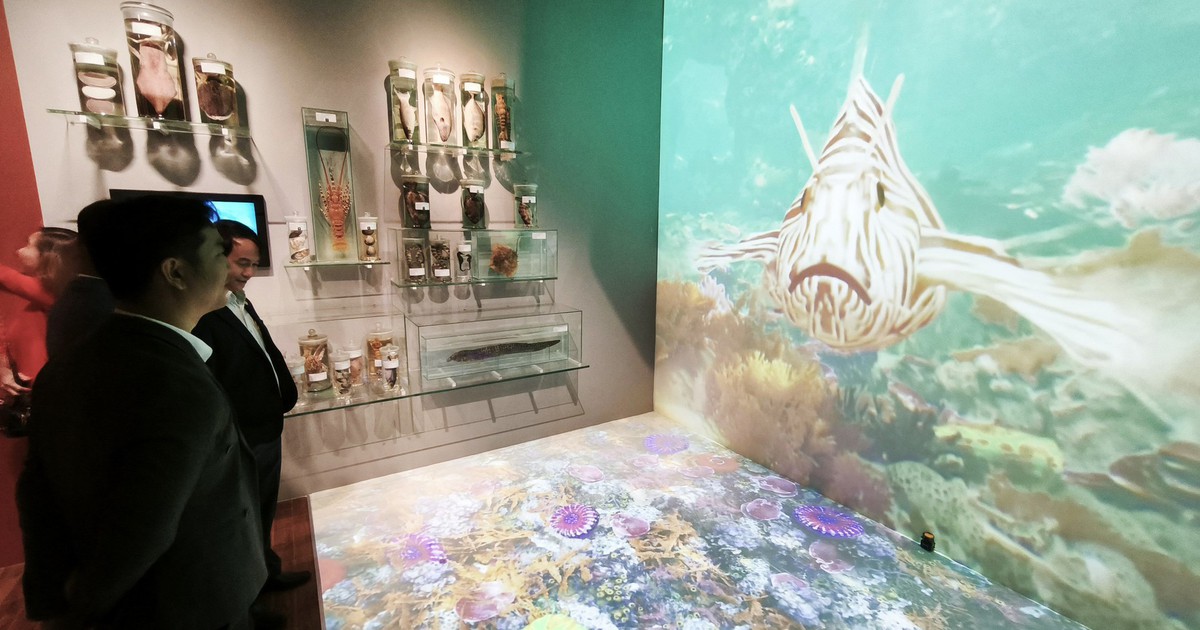


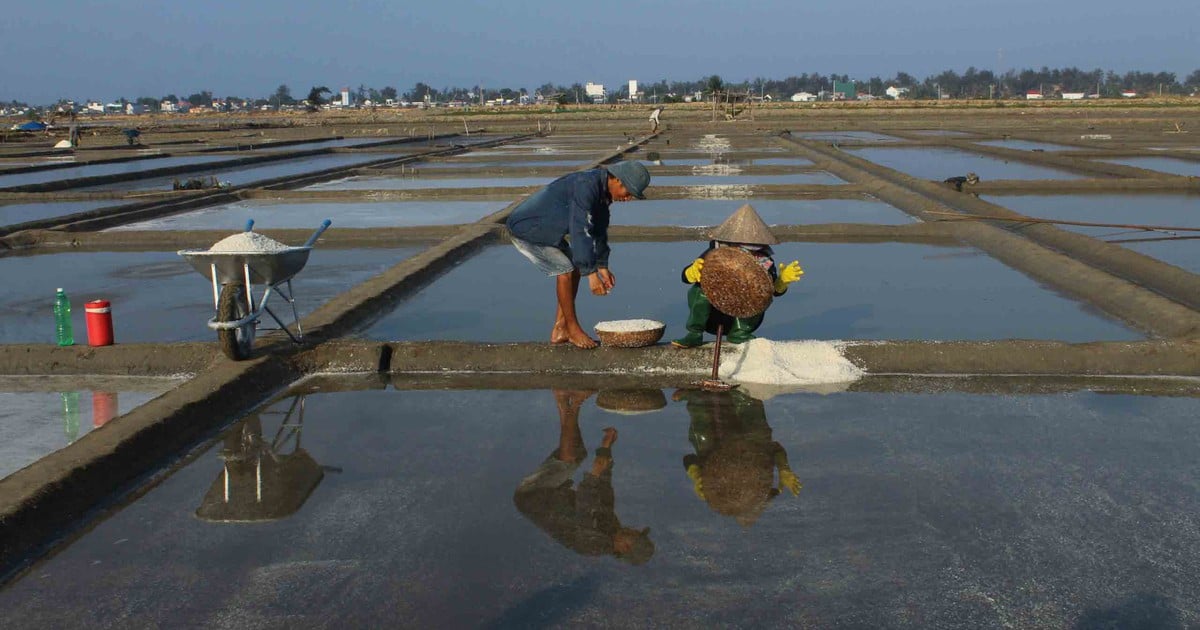

![[Photo] 2nd Conference of the Party Executive Committee of Central Party Agencies](https://vstatic.vietnam.vn/vietnam/resource/IMAGE/2025/3/31/8f85b88962b34701ac511682b09b1e0d)






























































Comment (0)